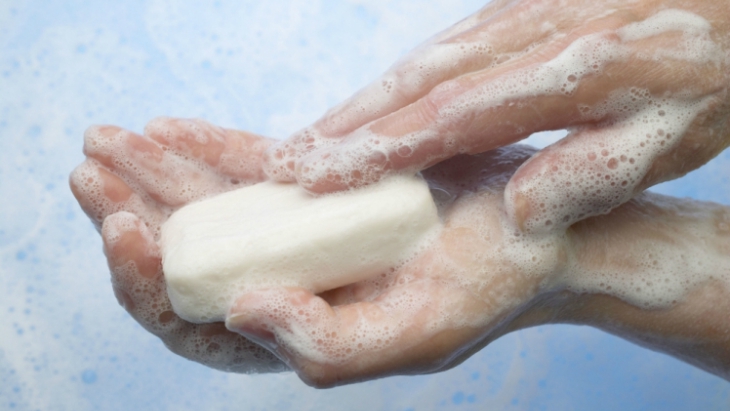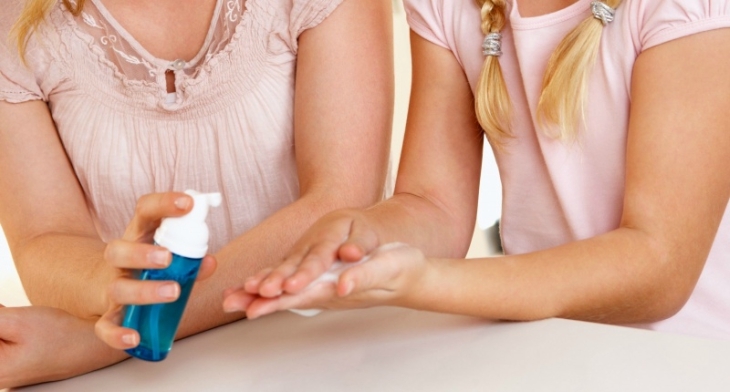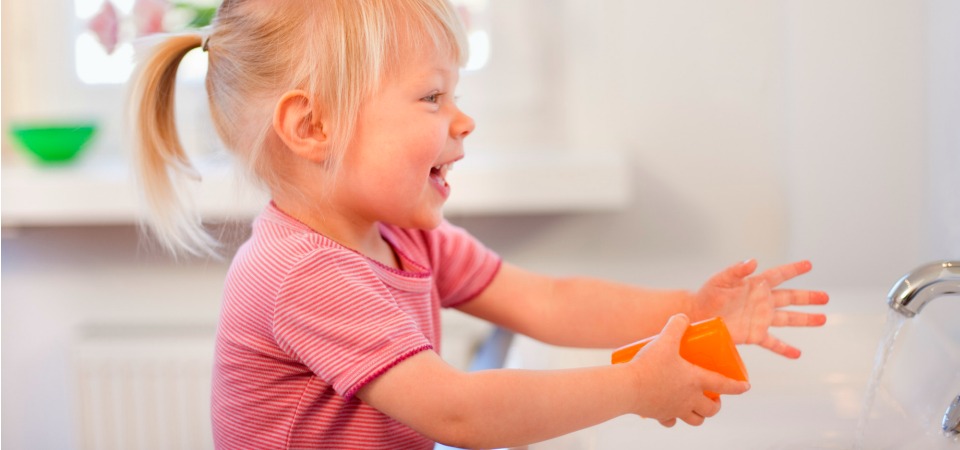What❜s Better For You: Plain Soap Or Hand Sanitiser?
- Parents Only

The increasing threat of Coronavirus has seen a huge demand for hand sanitiser, with supplies running low in supermarkets and chemists across Sydney.
Which made us wonder, if you were to put the humble soap up against a dispenser of hand sanitiser in a fight, who do you think would win?
Did you know plain soap and water will prevail?
Washing your hands with regular soap and water is actually a better option for getting rid of germs and preventing the spread of infection. And so far, soap supplies are still plentiful.
NPS MedicineWise has reminded us about the importance of hand washing as a way of preventing illness and stopping the spread of infection-causing bacteria.

There’s A Simple Solution
Although washing your hands with soap and water won’t kill viruses, bacteria and other microbes that can make us sick, doing so for at least 30 seconds will physically remove the majority of them from your skin.
What if soap and water aren’t available?
Alcohol-based hand sanitiser (with at least 60%–95% ethanol or isopropanol) would be your second best option but it’s not something that we, or our kids, should be using every day.

Are Antibacterial Products A Good Idea?
Antibacterial soaps that you would purchase at the shops contain low concentrations of ingredients such as triclosan and triclocarban. These can kill bacteria, but only during long washes of over 30 seconds, multiple times a day, for days at a time, which is not a sustainable practise for most people.
Emerging evidence shows that compounds like triclosan and triclocarban can affect the balance of bacteria in your gut, and can also make bacteria more resistant to some antibiotics. Resistance to triclosan and cross-resistance to antimicrobials have been consistently demonstrated in laboratory settings.
It’s also important to remember that by going overboard and trying to establish a sterile environment we may actually be increasing the population of bacteria that are highly resistant to antibacterials and, possibly, to antibiotics.
Hand Sanitisers Do Have Their Place
Seeing hand sanitisers in hospitals, daycare centres, schools and airports isn’t something that should cause alarm. In these high traffic environments they can be effective in stopping the spread of bacteria and viruses such as colds or flu.
And always keep your hand sanitiser in a safe place and out of reach of children. There is the risk of your child swallowing these sanitisers, some of which smell sweet and inviting to inquisitive children.
Six Steps To Clean Hands
Now, more than ever, is the time to practice good hygiene habits and teach your kids how to properly wash their hands. 30 seconds of hand washing can seem like an eternity to a toddler, so make it fun and sing a song as you do it (I was taught to sing Happy Birthday as I washed my hands as it’s roughly 30 seconds but my toddler finds this a disappointing choice of song, especially as there’s no cake at the end of it!).
This video below shows you how to effectively wash your hands in six simple steps:
Want To Have Fun Indoors?
Get Creative With Play-Doh
Board Games That Encourage Family Connection And Bonding
Card Games To Play With Kids On Rainy Days
Have you signed up to our newsletter? Join ellaslist to get the best family and kid-friendly events, venues, classes and things to do NEAR YOU!
Reviews


